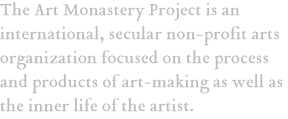Vigils: Intimacy with the Void
The title of poet Paul Celan’s 1967 collection, Atemwende (in English: Breathturn), suggests that mysterious moment at the end of the out-breath and the beginning of the in-breath. What happens in that gap is… a gap. It permits no concepts (not even “emptiness”) and yet, ineffably, is a part of the fullness of human experience.
The breathturn has its parallel in that void between the out-breath of sunset and in-breath of sunrise. It is in this midnight pause, in wakeful vigil while the rest of the world falls deeper into sleep’s dreamless depths, that monastics gather for the first ritual of their daily cycle. Having slept for a few hours after Compline, the closing ritual of the previous day, monks wake just after midnight to chant and pray the Vigils ritual. Perhaps alone in their cells, or gathered together in a cold, dark chapel, they find peace in the unconditioned spaciousness of two days’ interstice, devoid of interpretation or judgement.
Imagine starting every day for the rest of your life this way. This is intimacy with the void.
The first theme of the Art Monastery Project’s eight-year Monastic Cycle explores wakefulness amid pitch-black darkness: the Vigils ritual of the western monastic Liturgy of Hours. Looking at how this theme resonates through art and contemplative practice, the Artmonks begin their deep dive into western monastic ideas of time.
Vigils is more than midnight, more than darkness. It represents the formless state of being dead, and all those we have lost. It is emptiness, mystery, and a state of proximity to (or absence of) God. It is the heart of winter. It is the turning point from decay to renewal, the pause between ecological collapse and survival of the fittingest. It is the impossible distinction between space and the awareness of space.

We inaugurated the Vigils theme at the Renegade Retreat, and continued to explore it at the Artmonk Retreat. Join us as we continue to explore Vigils throughout 2012, in ritual, in retreat, in performance, in visual art and poetry.
Send us your ideas at info@artmonastery.org.




